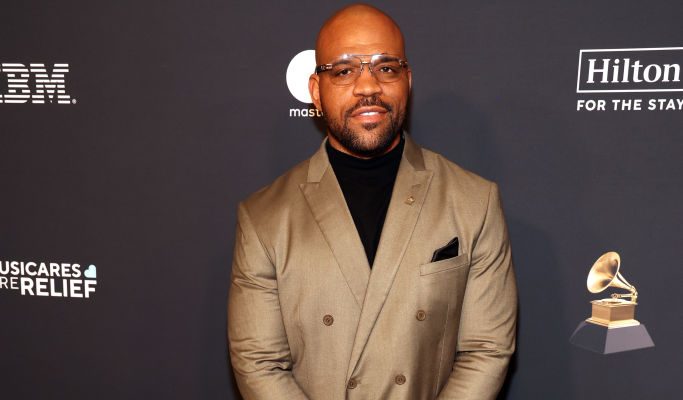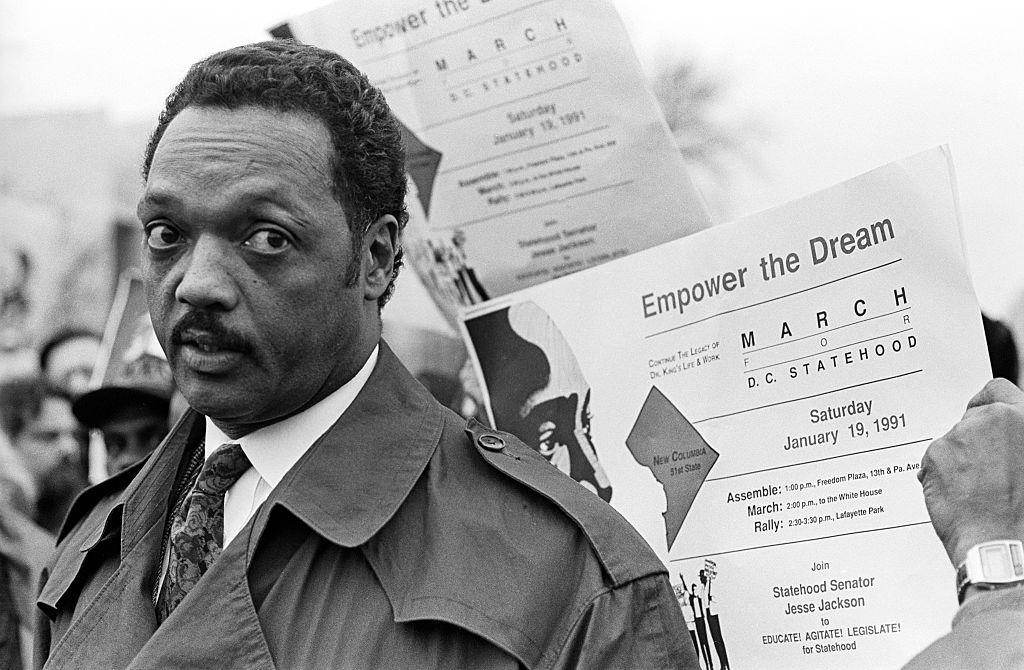Black Music Collective’s Torae on Hip Hop, Loss, Artists’ Rights

Torae, the Brooklyn-born rapper, radio personality, and cultural commentator has always been a multi hyphenate force in hip hop. Recently appointed co-chair of the Black Music Collective (BMC) of the Recording Academy along with poet/artist J. Ivy, he’s now in a position to elevate Black talent and advocate for creators nationwide. He chopped it up with fellow radio personality Jazmyn Summers about leadership, obstacles for artists, lyricism, personal loss and his take on the state of hip hop today.
Leading the Black Music Collective
“We have to come together, support each other, put each other on pedestals, and build together.”
Jaz:. What excites you most about this role with the Academy (which produces the Grammys)?
Torae: “Just being able to be a conduit from the Recording Academy to the community, to highlight our creators, to put Black talent on the pedestal that it deserves and just give the people their flowers, salute our past and current legends, educate the next generation, whether it be professionals or artists. There’s so much that comes along with being a part of the academy and being co-chair of the Black Music Collective that I’m super excited about. We’ve accomplished a lot already, and there’s more on the horizon.”
Jaz: How do you see your role?
Torae: “I’m no figurehead. I’m a Coney Island kid. I’m not nobody that’s just there for a look. I’m really from the culture; I’m really an independent artist. I’m really an MC from Coney Island, from Brooklyn, New York”
Jaz: What do you see as the major obstacles facing Black music creators today? Salt-n-Pepa for example are still fighting for their masters.
Torae: “Being given the equitable platform with their counterparts. A lot of times, our music is put in a very small space and only allowed to grow to a certain degree. Other artists from other backgrounds can still go number one. Our artists are making the same records—or even better—but don’t always get that same opportunity. Making sure people are compensated properly for what they earn is another big issue. AI is a major factor too—we have to protect all creators against what’s happening in AI and get the laws organized around it.”
Hip Hop Beef and Unity
“It’s better together than apart.”
Jaz: What are your thoughts on all the beef?
Torae “Hip hop is such a competitive sport that you’re going to get titans that clash at the top because you got to look at hip hop just like any other competitive space, there can only be one ultimate winner in a basketball game or a series. And everybody is gunning for that top spot in hip hop. Ja Rule said, that beef is not good for the business. It disrupts the money and the opportunities for people to build something together as opposed to them being separate. Outside is very crazy right now, so we definitely got to be down for each other and supporting one another. Let’s work together. Why are we beefing when we can get some money together and we can change some lives together and we can build some legacy together. It’s better together than apart.”
Advocacy and Legal Challenges
“I’ll keep fighting”
Jaz: Rap lyrics are still sometimes used to convict artists. How do you view these legal challenges?
Torae: “I’ve advocated for this a lot trying to get these laws reversed or interpreted differently. Being scrutinized for your art is one thing, but being convicted and incarcerated over it is another. The Recording Academy’s advocacy arm in D.C. constantly talks to lawmakers, lobbies, and pushes for change. Advocacy is really dear to my heart, and I’ll keep fighting until these laws are changed.”
Hip Hop, Accountability, and History
“I can’t control nothing that happened before I got there. I can control everything that happens now that I’m here.”
Jaz: Hip hop’s relationship with the Grammys has been complicated. Will Smith boycotted it, Drake held a silent protest and some artists like KRS-One still refuse to go. How do you navigate honoring the Academy while holding it accountable?
Torae: “If there’s an opportunity for us to celebrate KRS One as the co-chair of the Black Music Collective, I would jump at it. Holding the new regime accountable for what happened 30, 40, 50 years ago is unfair. It’s just like anything else. This country that we in was once a whole different place because of the ways that the laws were set up and racism. I can’t control nothing that happened before I got there. I can control everything that happens now that I’m here. Accountability is key. The change you see now in the Academy is because people who know, respect, and are inspired by you are part of it. “
The State of Hip Hop
Jaz: Where do you see hip hop today?
Torae: “ It’s gone to amazing places. Young people can now reach audiences directly from their bedrooms, though competition is tougher. But the cream always rises. It’s beautiful to see artists in their forties and fifties still putting out relevant music—Nas, Black Thought, Common, De La Soul. You can age in hip hop gracefully now, as long as you stay sharp.”
Jaz: What about lyricism?
Torae: “It never went away. I always sought out lyricism, MCs that made my brain hurt in a good way. Mainstream music goes through cycles, but lyricism is definitely back on everyone’s mind.”
Jaz: And the criticism of female rappers for sexualized lyrics?
Torae: “There’s something for everybody. You can find women spitting thought-provoking lyrics—Lady London, Rhapsody.. To say women aren’t doing it is crazy. The mainstream pushes a certain image, but there’s so much depth if you look for it.”
Personal Loss and Life Lessons
Jaz: I know your wife passed a few years ago. How has that impacted you?
Torae: “Life throws curveballs. My wife passed away 20 months ago, and it was the biggest curveball ever. Married 15 years, dated 25 years, a beautiful love. Even in her absence, her presence guides me. We were kids, we struggled, we came back together. We was young. We was in the projects, we was trying to figure stuff out. We was broke. We broke up, we got back together. We did all the things. But that was my person. It was a beautiful, complex love. I am reminded every day how rare and special our love was.”
Rapid-Fire: Favorites
Q: Illmatic or Reasonable Doubt?
Torae: (laughs) My wifi is breaking up… I can’t.
Q: Premier or Pete Rock?
Torae: Yeah… my wifi is just so shaky right now.
Q: Griselda or Dreamville?
Torae: Griselda. Just overall grit and slick talk and street art. Their presentation aligns with the music I came up on. I love Dreamville too—they’re my people.
Q: Kendrick or Drake?
Torae: Kendrick. Drake is a superstar, but Kendrick makes you think and feel.
Q: Most underrated MC alive today?
Torae: Me. Me.
Q: Artists you want to collaborate with?
Torae: Nas and Black Thought. The Roots sessions were incredible, and new verses are coming, so I want to be part of that.
Legacy and Leadership
“If you see the good in me, that’s God shining through. I’m just grateful to be a vessel.”
Jaz: Where do you see your legacy and leadership going?
Torae: I let God guide my steps. My goal now is helping the next generation realize their dreams, continuing to highlight God in all I do. Sky’s the limit—more music, touring, radio, and time with my kids. If you see the good in me, that’s God shining through. I’m just grateful to be a vessel.”

Article by Jazmyn Summers. You can hear Jazmyn every morning on “Jazmyn in the Morning “on Sirius XM Channel 362 Grown Folk Jamz . Subscribe to Jazmyn Summers’ YouTube. Follow her on Facebook and Instagram.









